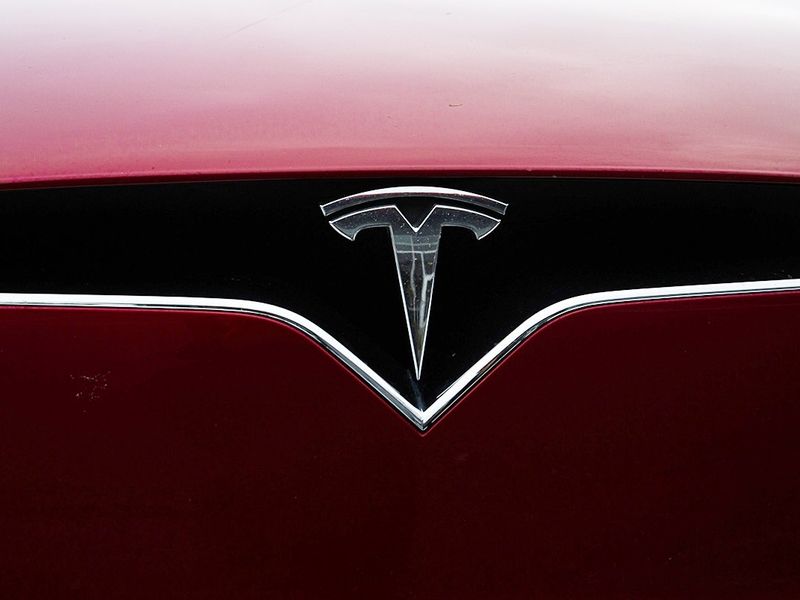
The world’s leading electric-car maker is getting behind the the world’s largest electronic currency.
Tesla Inc. invested $1.5 billion in Bitcoin and signaled its intent to begin accepting the cryptocurrency as a form of payment, sending prices to a record after the vote of confidence from the EV leader and recent stock-market darling.
CEO Elon Musk’s company said in a filing Monday it made the bet on Bitcoin after updating its investment policy last month to allow it to buy digital assets.
“We expect to begin accepting Bitcoin as a form of payment for our products in the near future, subject to applicable laws and initially on a limited basis,” Tesla said in the securities filing.
Tesla’s embrace of Bitcoin lends increased legitimacy to electronic currencies, which have become more of a mainstream asset in recent years despite some skepticism. It also fits the maverick image of Musk, who upended the automotive industry with battery-powered vehicles and disrupted the equities market with the stock’s ascension to the blue-chip S&P 500 Index last year.
Tesla took a flier on the digital coin after it tripled in 2020. The cryptocurrency rose as much as 16 percent to an all-time high of $44,795 Monday.
Bitcoin Twitter banter
Musk has often tweeted about cryptocurrency-related topics and earlier this month called Bitcoin “a good thing” in an interview. Dogecoin, the once tongue-in-cheek digital currency, hit a record on Monday after Musk, rapper Snoop Dogg and Kiss bassist Gene Simmons all tweeted about it.
Musk has flirted with Bitcoin for years and in December posted on Twitter a suggestive image indicating he’s tempted by the token. He also inquired about converting “large transactions” of Tesla’s balance sheet into Bitcoin in a Twitter exchange with Michael Saylor, CEI of MicroStrategy Inc. and a prominent booster of the digital currency.
In a series of tweets, Saylor encouraged the billionaire to shift dollars from the EV company to the cryptocurrency and “do your shareholders a $100 billion favor.”
Tesla now trails only MicroStrategy as the largest corporate owner of Bitcoin; it issued $650 million in convertible bonds last year explicitly to use the cash to buy the cryptocurrency.
Saylor has proselytized about Bitcoin, recently holding a webinar on how corporate treasurers should move some cash into the digital coin.
Tesla’s cash hoard
Investors in Tesla now are taking an additional wager on Bitcoin. It accounts for just a fraction of the company’s cash hoard but represents a commitment to a volatile asset class that few other businesses of Tesla’s size have made. The automaker said its revised policies also permit it to invest in gold bullion and gold exchange-traded funds.
“Tesla is hardly considered a traditional company, but when one of the largest companies in the world starts to hold Bitcoin on its balance sheet as a substitute for cash, the market takes notice,” Paul Hickey of Bespoke Investment Group wrote in a note to clients.
Shares of Tesla closed Monday’s trading up 1.3 percent to $863.42.
The company ended 2020 with more than $19 billion in cash on hand after having raised $12 billion in stock sales, taking advantage of an almost 750% surge in its share price. Part of the demand for those shares came from passive investors forced to buy after Tesla was added to the S&P 500 on Dec. 21. Some $11 trillion is indexed to the benchmark for American equities.
“Elon Musk has been a fan of Bitcoin and has been tweeting about it, but from a purely business perspective, there aren’t a lot of benefits from this decision,” said Michael O’Rourke, chief market strategist at JonesTrading. “The question investors will have is whether $1.5 billion is material for Tesla. Tesla had a few share offerings last year and raised some cash, but I’d still think $1.5 billion is material, just because the assets are very volatile.”
Bypassing dealers
One of Tesla’s earliest moves to shake up the status quo in the auto industry was to sell direct to consumers. That decision to cut out dealers makes it easier to accept a digital currency since all of the company’s retail transactions are over the internet.
Despite Tesla’s plans to accept payment by Bitcoin, hardly anyone who owns the digital coins uses them for anything beyond speculation. Data from New York-based blockchain researcher Chainalysis Inc. showed that only 1.3 percent of economic transactions came from merchants in the first four months of 2019. The industry is full of folklore such as early adapters buying pizza with Bitcoin that is now worth millions of dollars.
Musk’s move also will probably drive up interest in Bitcoin mining, the energy-intensive process of creating more of the digital currency. Miners use banks of powerful computers running specialized software. It’s a complicated and time-consuming process that can suck up vast amounts of electricity. Power consumption related to Bitcoin has increased more than eightfold since 2017, by some estimates.
The amount of emissions Bitcoin mining generates depends on the power where the coins are produced. Coins mined in the U.S. Pacific Northwest — where hydropower is cheap and abundant — are apt to be less damaging to the environment than those mined in coal-heavy regions of China or India.

